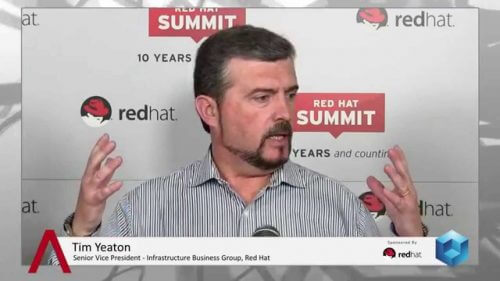The Sanger Institute, a leading research institute in genome sequencing and genetic research, is adopting the Red Hat OpenStack platform and Red Hat CloudForms to provide highly reliable and scalable cloud computing solutions that will improve the ability to share data-rich scientific research.

Red Hat, the world's largest provider of open source solutions, announced that the Sanger Institute (Wellcome Trust Sanger), a world leader in genome research, based its cloud computing systems and services on the Red Hat OpenStack platform as a standard and Red Hat CloudForms. This will allow the Institute to more efficiently provide and manage scientific computing on a large scale, or "Science-as-a-Service" (Science-as-a-Service) for its researchers and start-ups in the field of biotechnology, housed together in a new research facility on the Wellcome Genome campus.
The Sanger Institute of Cambridge in the United Kingdom, named after the biochemist Frederick Sanger, serves as a global research center for genomic discoveries, and collaborates with start-up companies, pharmaceutical manufacturers, governments and other research centers. By its very nature, the institute's work is data-intensive, since the organization creates sequences of large numbers of DNA samples to look for differences, and needs the ability to turn these results into accessible and shareable data for additional global research projects.
In order to achieve the computing power required for these tasks, the Sanger Institute traditionally relied on a computing cluster infrastructure, but this lacked flexibility and was not suitable for cooperation with other organizations. The desire for collaboration quickly became a necessity, as the institute wanted to work more closely with several biotech start-ups operating on its campus. Improving the capabilities of internal and external users to run heterogeneous workloads in a safer and more secure environment, the ability to allocate resources with the click of a single button. Through this Science-as-a-Service offering, the Sanger Institute wanted to simplify collaboration globally and on its campus. This challenge must improve its computing infrastructure.
The institute wanted to base its offering on open standards and open source technologies, including OpenStack as a private and hybrid cloud infrastructure. The institute was looking for a partner to help support this infrastructure who would have experience in setting up large-scale deployments in a short time. Since the institute opened a new research institute, it set an aggressive schedule for establishing the innovative service. To receive a response to all these needs, the Sanger Institute turned to Red Hat, the world's largest provider of open source solutions, and one of the largest contributors to the OpenStack project.

Dr. Tim Cutts, director of scientific computing at the Sanger Institute, said: "The Red Hat OpenStack platform allows users to create and share a virtual machine of their research, and to find and move virtual machines from anywhere. This means that we are able to perform complex analyzes on data worldwide, with the confidence that we can meet the needs of data integrity and governance. Additionally, Red Hat CloudForms is used to manage this complex hybrid cloud environment, and to provide a higher quality user experience."
The Institute's Service Catalog, based on the Red Hat OpenStack platform, offers internal users and on-campus companies different service level agreements (Gold, Silver and Bronze), each offering a different mix of services and applications to help meet unique scientific needs. In addition, the Sanger Institute uses the award-winning Red Hat CloudForms hybrid cloud management solution to monitor and control this complex environment, and provide a continuous user experience.
Red Hat's consulting body worked closely with scientific computing experts at the Sanger Institute, To help implement the new solution based on OpenStack for the opening of the new facility. Red Hat's consulting body was presented with the challenge of a time limit of only three months to build and launch the solution. Red Hat's consulting organization provided the institute with the knowledge and experience required not only to meet the schedule, but also to establish procedures around the new infrastructure, and help in implementing the associated services such as CloudForms integration, billing according to usage, and managing the startup accounts on campus.

The institute's Science-as-a-Service offering has been installed and is now fully operational, serving five startups in the new research facility. The institute's catalog includes three petabytes (1000 terabytes) of storage capacity, 6,000 processor cores and 100 Gigabit connectivity, with the ability to expand these capabilities with new projects and collaboration opportunities.
Tim Yeaton, Senior Vice President of the Business Infrastructure Group at Red Hat, said: "The Red Hat OpenStack platform and Red Hat CloudForms enable organizations to build and manage a highly scalable hybrid cloud architecture best suited to their unique needs thanks to the flexible nature of open source. We are happy that the Sanger Institute has based its new offering on our solutions, and look forward to supporting the institute's efforts using these solutions to pave new paths in human genome research."
